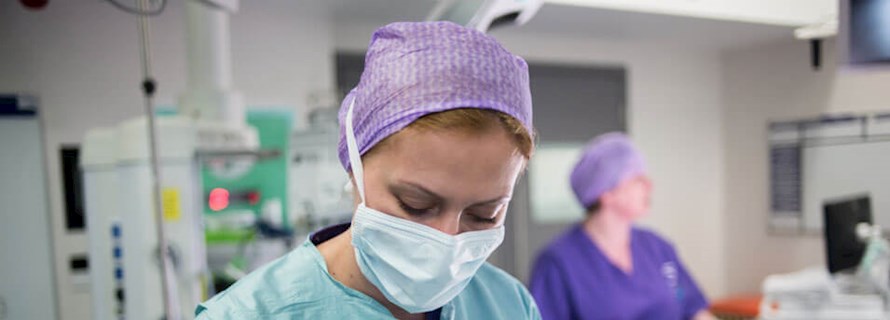Acute coronary syndrome (ACS)
Heart attack, Myocardial Infarction, Unstable Angina
We treat symptoms of acute coronary syndrome at our world-class hospitals
What is acute coronary syndrome?
Acute coronary syndrome (ACS) is an umbrella term for a specific medical emergency: when the blood supplying the heart muscle is suddenly significantly reduced or blocked. Both heart attacks and unstable angina are acute coronary syndromes and require emergency care.
In the first instance you should call 999 or attend your local emergency department, if you think you are experiencing ACS. You will need to be admitted to an acute cardiac care unit immediately. If you have a primary care cardiologist, they can be contacted as part of your care.
In the first instance you should call 999 or attend your local emergency department, if you think you are experiencing ACS. You will need to be admitted to an acute cardiac care unit immediately. If you have a primary care cardiologist, they can be contacted as part of your care.
Need to know
-
What are the symptoms of acute coronary syndrome? icon plus
The first symptom of acute coronary syndrome is typically chest pain or discomfort. You may also feel pressure or tightness in your chest, as well as pain in the left or both arms, jaw and upper abdomen. You may also feel nausea and sweating.
All of these symptoms should be taken seriously and you should call 999. -
Diagnosing ACS icon plus
If you have an ACS, it's likely that emergency tests will be conducted in the emergency department of the nearest hospital. The two main tests for ACS are:
- Electrocardiogram (ECG). Electrodes are attached to your skin so that electrical activity in your heart can be measured. ACS causes characteristic changes in the ECG which confirms the diagnosis.
- Blood tests. These detect the presence of particular cardiac enzymes in the blood. After the death of heart muscle, the level of cardiac enzymes in the blood rises. This confirms a heart attack..
-
Potential treatment options icon plus
Your consultant will try and restore blood flow to the heart through angioplasty and stenting. This involves passing a deflated balloon through a catheter (via the groin or the wrist), which is then inflated to open up the narrowed or blocked artery. A stent is then expanded there and remains within the blood vessel to preserve blood flow to the heart.
Our cardiologists
We're proud to work with leading cardiac experts, whose skills are matched by their integrity and compassion.




Our locations
From complex cardiothoracic surgery to diagnostic tests and procedures, we provide cardiac exceptional care across our network of hospitals, outpatient centres and specialist clinics.
Request a cardiac appointment
If heart symptoms are affecting your quality of life, we’re here to help. Our heart team is available to book an appointment with a cardiac specialist.
Call us today
020 7616 4988
This content is intended for general information only and does not replace the need for personal advice from a qualified health professional.